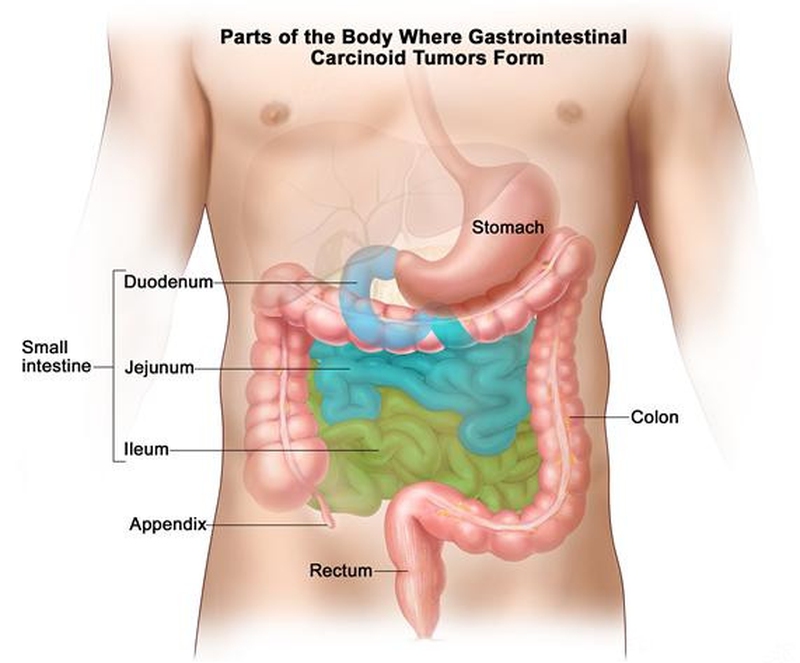Your appendix is attached to first part of your large intestine as a tube of issue that is about 3.5 inches long. It is still not clear about what the purpose of the appendix is, but it does not seem to serve a required purpose within your body. There are some medical conditions that can affect your appendix and cause problems.

Where Is Appendix?
Your appendix hangs down from the area where your small and large intestines meet. It usually sits low down on the right side of abdomen. Although the function of the appendix is not known, it has been suggested that it may work for the digestive system, which stores good bacteria in order to help the body recover after intestinal illnesses, or it may just be left over from earlier human evolution, which can be removed without obvious problems.
What Can Be Wrong with Appendix?
Appendicitis
This condition occurs when your appendix becomes infected and inflamed. It is also possible that it can rupture. Symptoms of appendicitis include lower right abdominal pain, nausea and vomiting.
Tumors of the appendix
Tumors of the appendix do not happen very often. Those tumors can be cancerous or non-cancerous. Tumors that are carcinoid produce chemicals that cause symptoms like intermittent diarrhea, wheezing and flushing.
What Are the Symptoms of Appendix When There Is Something Wrong with It?
When something is wrong with your appendix, it will often become inflamed, which can lead to mild symptoms of pain close to your navel. As the inflammation becomes more serious, the pain becomes worse and can be felt in the lower right area of your abdomen, where your appendix is located. Nearby areas may also begin to hurt as the pain becomes worse.
The pain may last persist in the lower part between your navel and your pelvic bone on the right side, which is referred to as the McBurney point. If this spot is experiencing the worst pain, there is a good chance that you have developed appendicitis.
Other appendix symptoms may also appear, and it is important to be aware of, especially in children who are unable to describe the site of pain to you. Other symptoms of appendix problems include diarrhea and constipation, abdominal swelling, loss of appetite and fever. Many people who have developed appendicitis are also unable to pass gas.
If you believe that you or someone else is experiencing symptoms related to an inflamed appendix or appendicitis, seek immediate medical care. If appendicitis is not treated, it can be fatal.
How to Treat the Symptoms of Appendix
The first thing you need to do if you suspect a problem with the appendix is to see a doctor right away in order to get treatment.
If the problem is an abscess on your appendix that hasn’t ruptured, you may be given antibiotics first to treat infection. The abscess may be drained using a tube through your abdomen before having surgery to remove your appendix, which is known as an appendectomy.
If you have an abscess that has already ruptured, appendicitis or appendix tumor, you will probably need to have an appendectomy right away.

View All Comments /Add Comment